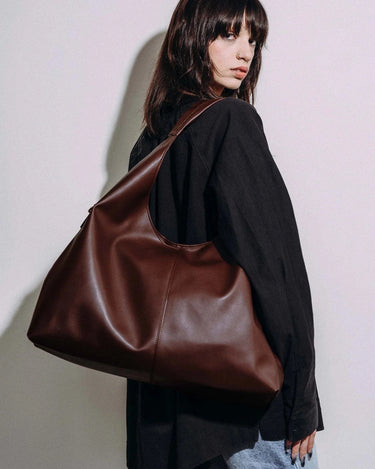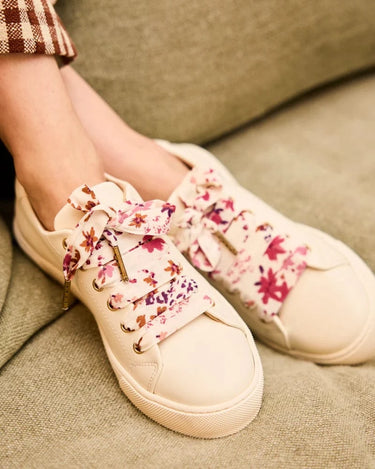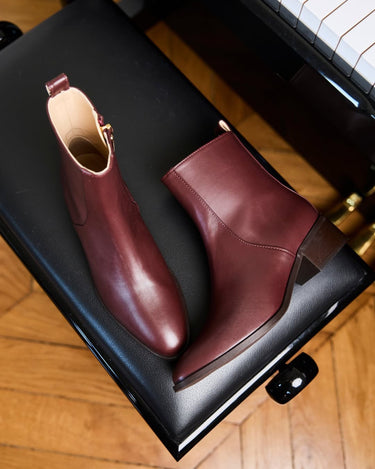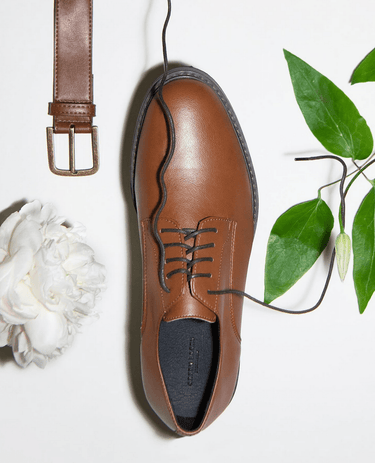Ethical Jewellery: How to Choose Wisely
A sleek silver bracelet. A pair of glittering, dangling earrings. A statement necklace. A wear-it-forever ring. Possibly the most long-lasting part of your wardrobe (well, aside from the constant complication of losing one earring), jewellery is that extra cherry on top, that icing on the cake, the detail that has the potential to make an outfit truly special.
By Sascha Camilli: writer, speaker, activist and vegan fashion expert.
Whether you're treating yourself or receiving a special gift, a piece of jewellery can become a memory to cherish forever.
But before you part with any money, you might want to look into the background of contents of that little box. Because jewellery is riddled with ethical issues – perhaps more so than some of our other beloved fashion items.
Firstly, there is the fact that jewellery is made through mining – a practice that is harmful to the environment and comes with series of worrying human rights implications. Take diamond mining, for example. An estimated 250 tonnes of earth is shifted every time a single carat is mined. Humans mine around 148 million carats every year, in mines so enormous that they can be seen from space with Nasa's Terra satellite.
This is just one of the mind-blowing abuses of our planet that takes place every day, just in the name of vanity. To counteract this, some companies have now taken to creating diamonds in laboratories, to eliminate the mining aspect.
And it is just one of the many issues around mining. The practice can also cause deforestation as areas are cleared to make room for the mines, and displacement of local populations. When it comes to human rights, one thing is clear: every mining job carries with it a risk of death. People who work in mines are consistently exposed to toxic substances and forced to breathe dust, which puts them at risk for lung issues. In South Africa, diamond miners have a 20% higher mortality rate than the rest of the population.
Another big issue marring the jewellery trade is child labour. It is estimated that one million children globally work in the mining of stones and metals, where they work in unstable and potentially dangerous conditions, exposing themselves to toxic chemicals and substances that might cause respiratory issues. Some of this damage can be irreversible. Child labour in the jewellery industry is reported to be increasing.
To shop jewellery ethically, ask questions. Try to find out how and where that item was made. Even if getting answers may prove difficult, you will have shown the company that the consumer interest is there, and that they must pay attention to these issues, which may spark the beginning of change.
Consider choosing jewellery made with recycled metals or second-hand/vintage items. Brands such as Bloomtine work with creating sustainably made jewellery from metals that are mainly recycled, and vegan accessory label Votch works with recyclable materials for their jewellery. Like second-hand fashion, these items are already out there, and by buying them, you can use what has already been created, instead of using any new resources. Not only will this help prolong the lifespan of these products, it will also give your look a truly unique touch.
Support brands that are working to increase transparency in the trade and champion human rights. Companies like Julia Thompson Jewellery, who focus on using Fair Trade metals, are at the forefront of a much-needed ethical jewellery movement. Fair Trade certifications provide standards to protect workers by regulating working environment, women's rights, child labour, wages, and more. Julia Thompson's delicate, ornately made designs are made from Fair Trade metals and recycled materials.
Brands like Bloomtine champion positive manufacturing by working with 90% recycled jewellery and 90% lab-grown gemstones such as diamond and moissanite. A part of the range also uses natural diamonds and salvaged gold. "Our jewelry is consciously handcrafted in small batches, exclusively using premium, sustainable repurposed metals like sterling silver or gold vermeil," says founder Dalpreet Dhiraj. "We consciously choose lab-grown diamonds and moissanite, which are as brilliant as their mined counterparts but without detriment to the environment."
Another brand to watch is Ana Dyla, who also choose recycled metals, alongside fairly mined gemstones in their luxe-looking yet surprisingly affordable line. Each of their pieces is handcrafted and made with a responsible mindset. Every piece sold creates 100 new Fair Trade jobs, leading to a much-needed increase in fair and responsible practices within the industry.
Under Her Eyes is a UK-based brand using recycled sterling silver for their pieces inspired by 1920s architecture. Founder Silva Hrabal-Owens is passionate about recycling and circularity: "For us, sustainability isn’t a trend, it’s a non-negotiable. We work with what already exists: recycled metals. Every piece is designed to be repaired, repurposed, or reborn. Didn’t sell? We melt it down and make something better. Still no takers? We do it again. Nothing wasted, nothing mindless. That’s circular fashion, on our terms."
When choosing jewellery, be mindful of the production practices and be curious about the journey that the item has made before ending up in your jewellery box. Be inquisitive. Talk about these issues and bring them to light. And choose wisely.
By Sascha Camilli
About Sascha
Sascha Camilli is a vegan fashion writer, speaker and activist. Her book Vegan Style is out now on Murdoch Books. For more about Sascha, you can read our interview with her or read her newsletter Kind Of Wild. You can also follow her on Instagram.
Cover image by Ana Dyla. Second image by Under Her Eyes. Third image by Ana Dyla. Fourth image byJulia Thompson Jewellery. Fifth image by Bloomtine. Final image by Under Her Eyes.
For more great content like this in your inbox, sign up to our newsletter, and save 10% off your next purchase, plus great savings throughout the year.
Related Articles

Vegan Christmas Gifts For Him






















































































































